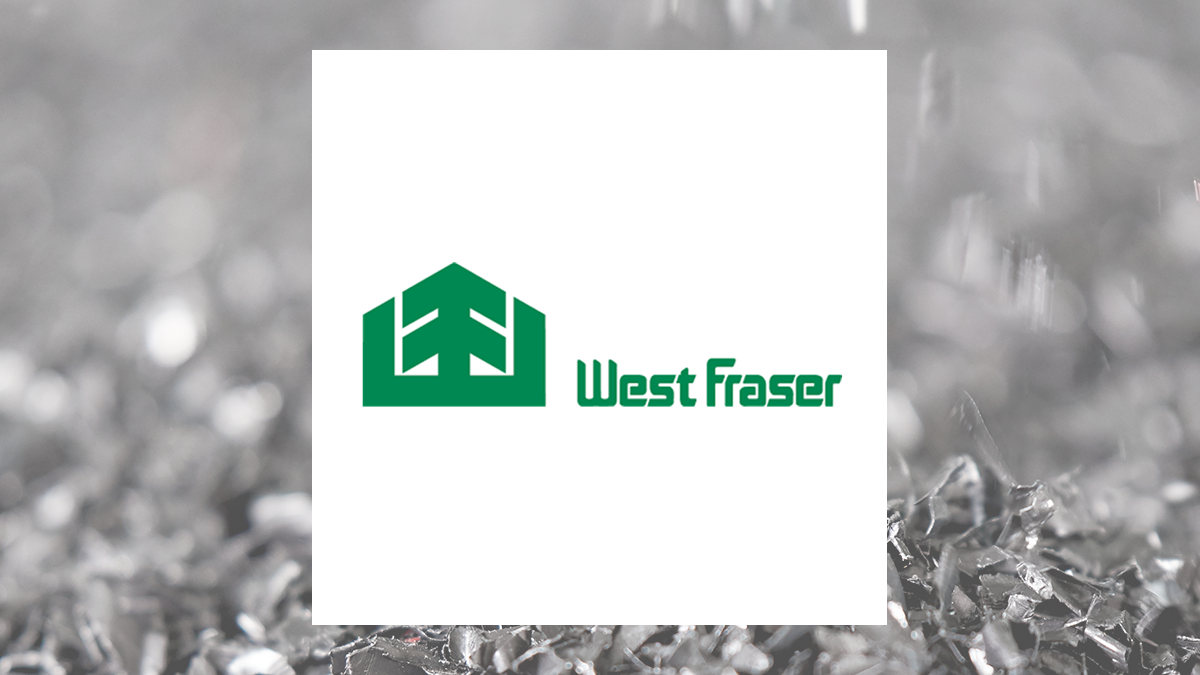West Fraser Timber (NYSE:WFG – Get Free Report) is one of 15 publicly-traded companies in the “BLDG PRD – WOOD” industry, but how does it compare to its competitors? We will compare West Fraser Timber to similar businesses based on the strength of its valuation, dividends, risk, analyst recommendations, earnings, profitability and institutional ownership.
Dividends
West Fraser Timber pays an annual dividend of $1.28 per share and has a dividend yield of 1.7%. West Fraser Timber pays out -752.9% of its earnings in the form of a dividend. As a group, “BLDG PRD – WOOD” companies pay a dividend yield of 1.7% and pay out 36.6% of their earnings in the form of a dividend. West Fraser Timber has raised its dividend for 3 consecutive years. West Fraser Timber is clearly a better dividend stock than its competitors, given its higher yield and lower payout ratio.
Earnings & Valuation
This table compares West Fraser Timber and its competitors top-line revenue, earnings per share and valuation.
| Gross Revenue | Net Income | Price/Earnings Ratio | |
| West Fraser Timber | $6.01 billion | -$5.00 million | -445.65 |
| West Fraser Timber Competitors | $4.90 billion | $297.37 million | -13.21 |
Institutional & Insider Ownership
40.2% of West Fraser Timber shares are held by institutional investors. Comparatively, 82.9% of shares of all “BLDG PRD – WOOD” companies are held by institutional investors. 1.8% of West Fraser Timber shares are held by company insiders. Comparatively, 4.4% of shares of all “BLDG PRD – WOOD” companies are held by company insiders. Strong institutional ownership is an indication that hedge funds, large money managers and endowments believe a stock will outperform the market over the long term.
Risk & Volatility
West Fraser Timber has a beta of 1.15, meaning that its stock price is 15% more volatile than the S&P 500. Comparatively, West Fraser Timber’s competitors have a beta of 1.43, meaning that their average stock price is 43% more volatile than the S&P 500.
Analyst Recommendations
This is a breakdown of recent ratings for West Fraser Timber and its competitors, as provided by MarketBeat.
| Sell Ratings | Hold Ratings | Buy Ratings | Strong Buy Ratings | Rating Score | |
| West Fraser Timber | 0 | 0 | 5 | 0 | 3.00 |
| West Fraser Timber Competitors | 188 | 1157 | 1098 | 47 | 2.40 |
West Fraser Timber currently has a consensus price target of $100.40, indicating a potential upside of 32.52%. As a group, “BLDG PRD – WOOD” companies have a potential upside of 18.49%. Given West Fraser Timber’s stronger consensus rating and higher probable upside, equities research analysts clearly believe West Fraser Timber is more favorable than its competitors.
Profitability
This table compares West Fraser Timber and its competitors’ net margins, return on equity and return on assets.
| Net Margins | Return on Equity | Return on Assets | |
| West Fraser Timber | 0.03% | 0.99% | 0.78% |
| West Fraser Timber Competitors | 7.65% | 10.27% | 6.04% |
Summary
West Fraser Timber competitors beat West Fraser Timber on 9 of the 15 factors compared.
About West Fraser Timber
 West Fraser Timber Co. Ltd., a diversified wood products company, engages in manufacturing, selling, marketing, and distributing lumber, engineered wood products, pulp, newsprint, wood chips, and other residuals and renewable energy. It offers spruce-pine-fir, douglas fir-larch, hem-fir, and southern yellow pine lumber, treated wood products, medium density fiberboard panels and plywood, oriented strand board, and laminated veneer lumber wood products, as well as particleboards. The company also provides northern bleached softwood Kraft pulp and bleached chemical thermo-mechanical pulp used to produce various paper products, including printing and writing papers, paperboard products, tissue and towel products, and a variety of other paper grades. Further, it offers bioproducts, including bioenergy and biomaterial. Its products are used in home construction, repair and remodeling, papers, tissue, and box materials, and industrial applications. The company sells its products to major retail chains, contractor supply yards, and wholesalers, as well as industrial customers for further processing or as components for other products in Canada, the United States, the United Kingdom, Europe, and internationally. West Fraser Timber Co. Ltd. was founded in 1955 and is headquartered in Vancouver, Canada.
West Fraser Timber Co. Ltd., a diversified wood products company, engages in manufacturing, selling, marketing, and distributing lumber, engineered wood products, pulp, newsprint, wood chips, and other residuals and renewable energy. It offers spruce-pine-fir, douglas fir-larch, hem-fir, and southern yellow pine lumber, treated wood products, medium density fiberboard panels and plywood, oriented strand board, and laminated veneer lumber wood products, as well as particleboards. The company also provides northern bleached softwood Kraft pulp and bleached chemical thermo-mechanical pulp used to produce various paper products, including printing and writing papers, paperboard products, tissue and towel products, and a variety of other paper grades. Further, it offers bioproducts, including bioenergy and biomaterial. Its products are used in home construction, repair and remodeling, papers, tissue, and box materials, and industrial applications. The company sells its products to major retail chains, contractor supply yards, and wholesalers, as well as industrial customers for further processing or as components for other products in Canada, the United States, the United Kingdom, Europe, and internationally. West Fraser Timber Co. Ltd. was founded in 1955 and is headquartered in Vancouver, Canada.
Receive News & Ratings for West Fraser Timber Daily - Enter your email address below to receive a concise daily summary of the latest news and analysts' ratings for West Fraser Timber and related companies with MarketBeat.com's FREE daily email newsletter.
